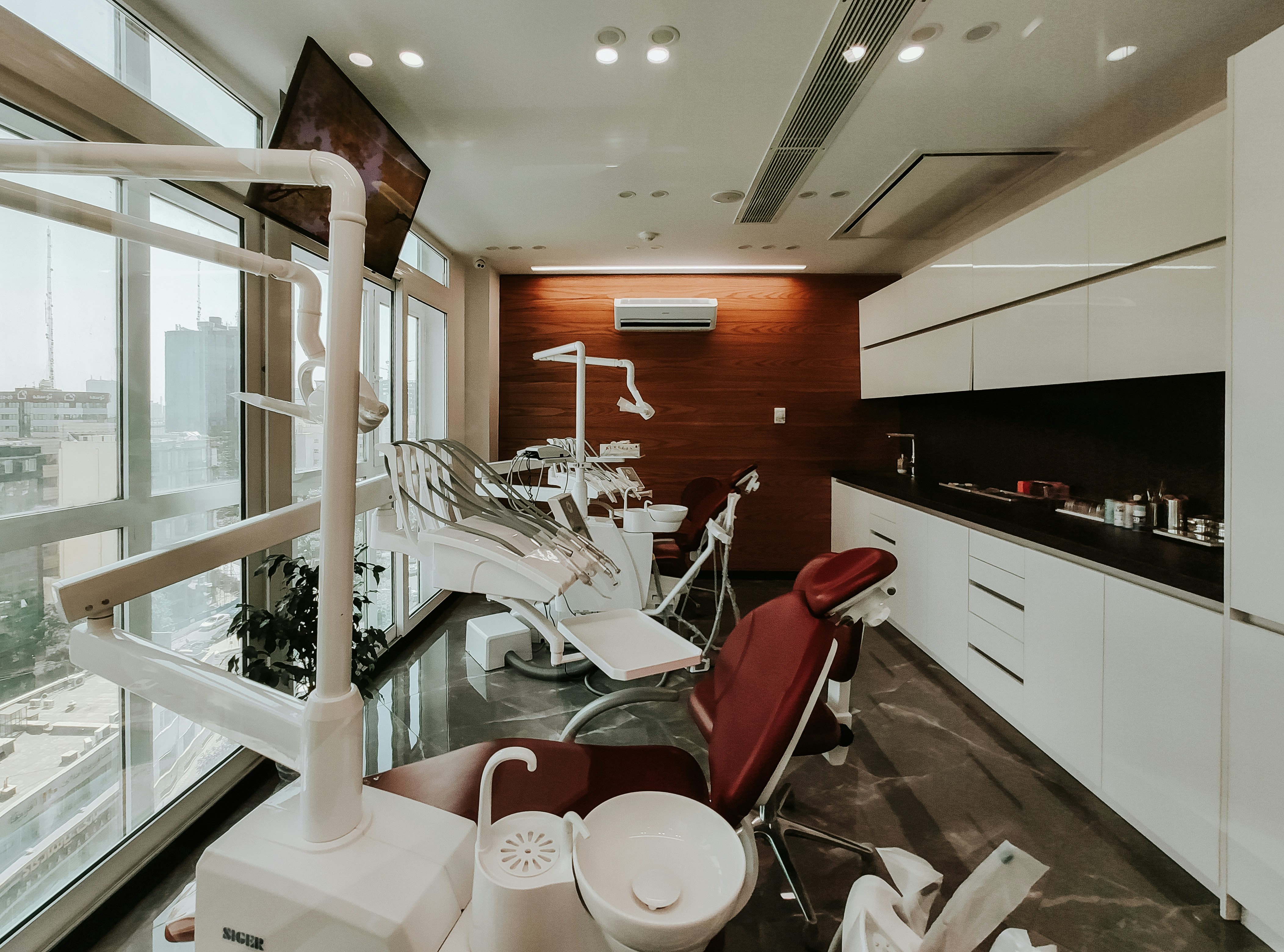Introduction to WordPress for Dental Clinics
In today’s digital age, having a robust online presence is crucial for dental clinics. One of the most effective ways to establish this presence is by utilizing WordPress as a content management system (CMS). The advantages of setting up a dental clinic website extend beyond mere visibility; they encompass various functionalities that can significantly enhance our interactions with patients.
A well-designed dental clinic website serves as an essential tool for patient engagement. It offers vital information about services, the team, and clinic hours while also fostering trust through testimonials and reviews. By leveraging WordPress, dental clinics can easily update content and maintain an engaging platform. Furthermore, WordPress provides a plethora of themes and plugins specialized for healthcare, enabling clinics to customize their websites according to their unique branding and operational needs.
Moreover, a dental clinic website can improve appointment booking processes. With integrated scheduling tools, patients can book their appointments online at their convenience, thus reducing administrative burdens and streamlining operations. This not only enhances patient satisfaction but also allows the clinic staff to focus on delivering quality care rather than managing calls.
Another crucial feature of WordPress is its user-friendly interface. Even those with minimal technical skills can manage their dental clinic website effectively. This accessibility empowers clinic staff to keep the website current, allowing for timely updates on services or promotional offers. Additionally, WordPress’s SEO-friendly nature aids clinics in ranking higher in search engine results, making it easier for potential patients to find them.
As you embark on the journey of setting up a dental clinic website, this guide will walk you through each step, ensuring that your online platform serves both as an informative resource and an effective engagement tool. By the end, you will be equipped to create a strong digital footprint that resonates with your patient base.
Choosing the Right Domain Name and Hosting
When creating a dental clinic website, the selection of a suitable domain name is of paramount importance. The domain name is the online identity of your dental practice, so it should accurately reflect your brand and services while being memorable for potential patients. It is advisable to keep the name simple, avoiding complex words or excessive hyphens that could lead to confusion. Ideally, incorporate keywords related to dentistry or your location, which aids in search engine optimization. For instance, a domain like “CityNameDental.com” can enhance visibility and attract local patients searching for dental services.
Beyond the domain, selecting a reliable hosting provider is crucial for the performance and security of your dentist website. A trustworthy hosting service ensures that your website has minimal downtime, is fast-loading, and can handle the traffic levels associated with your dental clinic. When choosing a hosting plan, look for features like SSL certification for security, efficient customer support, and scalability options to accommodate potential growth in your patient base. Some hosting providers offer services tailored specifically for medical and dental websites, which can streamline the management of your content and enhance user experience.
Moreover, consider your hosting options—shared hosting may be adequate for smaller practices, while larger clinics might benefit from dedicated or VPS hosting solutions. Pay attention to loading speeds, as patients may become frustrated with slow websites, leading to increased bounce rates. Evaluate each potential provider by reading reviews and seeking recommendations from colleagues in the field. By carefully choosing both a memorable domain name and a reliable hosting solution, you lay a strong foundation for your dental clinic website, enhancing online visibility and patient engagement.
Installing WordPress and Required Plugins
Setting up your dental clinic website begins with the installation of WordPress on your chosen hosting platform. This process is relatively straightforward and does not require advanced technical skills. Start by logging into your hosting account and locating the WordPress installation feature, which is often found in the control panel. Most hosting services offer a one-click installation option that simplifies this procedure significantly.
Select the domain where you want to install WordPress and follow the prompts to complete the installation. Once the installation is finished, you will receive your login credentials, which will allow you to access the WordPress dashboard. This will serve as your command center for the dental clinic website.
After successfully installing WordPress, you will need to enhance the functionality of your dental clinic website by adding essential plugins. Plugins are tools that allow you to customize and extend the capabilities of your website. Some crucial plugins to consider include appointment scheduling tools, which enable patients to book appointments online, enhancing the user experience and streamlining operations. Plugins such as Bookly or Amelia are popular choices among dental clinics for managing appointments efficiently.
Another important category of plugins for your dentist website includes those focused on SEO optimization. Plugins like Yoast SEO can help ensure that your website is optimized for search engines, making it easier for potential patients to find your services online. Furthermore, security plugins such as Wordfence or Sucuri are vital for protecting your site against cyber threats, safeguarding sensitive patient information.
By systematically installing WordPress and selecting the necessary plugins, you will lay a strong foundation for your dental clinic website design. This approach not only enhances functionality but also enhances patient engagement, ultimately contributing to the growth of your practice.
Selecting a WordPress Theme for Dental Clinics
When creating a dental clinic website, one of the most crucial decisions involves selecting an appropriate WordPress theme. A well-chosen theme not only enhances the appearance of your site but also plays a significant role in the user experience. Therefore, it is essential that the theme embodies characteristics that cater specifically to the needs of dental clinics.
Firstly, responsiveness is a fundamental aspect to consider. A responsive theme ensures that your dental clinic website displays correctly across various devices, such as desktops, tablets, and smartphones. Given the rise in mobile browsing, having a responsive design is vital for reaching potential patients effectively. A website that adjusts seamlessly to different screen sizes can enhance user engagement and decrease bounce rates.
Secondly, layout options should not be overlooked. The theme should provide flexibility in organizing content, making it easy to highlight key services such as teeth whitening, routine check-ups, and emergency care. A well-structured layout can help guide visitors through your offerings while providing a clear path to schedule appointments. Moreover, customizable features are instrumental in making your dentist website unique. Search for themes that allow easy alterations in color schemes, fonts, and visual elements, enabling you to convey your clinic’s brand identity.
Integration capabilities with plugins are another critical aspect. A suitable WordPress theme for a dental clinic should support popular plugins such as appointment scheduling, contact forms, and even SEO tools. These integrations can streamline operations and enhance the overall functionality of your dental clinic website. Finally, prioritize a user-friendly design that simplifies navigation, ensuring prospective patients can effortlessly find information and access services. By considering these factors, clinics can create an impactful online presence that attracts and retains patients.
Customizing Your Dental Clinic Website
Customizing your dental clinic website is a crucial step in establishing a unique online presence that reflects the values and services of your practice. WordPress offers a wealth of customization options that allow you to modify themes and incorporate branding elements such as logos and color schemes to create a cohesive design. The choice of theme is the first point of customization; selecting a theme tailored for medical or dental practices can save time and ensure that the overall layout complements your specific needs.
Once you have chosen a theme, you can begin the process of modification. WordPress provides an intuitive dashboard where you can change fonts, colors, and layouts. Incorporating your dental practice’s color palette not only reinforces brand identity but also creates a visually appealing experience for visitors to your dentist website. Adding your logo prominently on the homepage enhances brand recognition and gives your site a professional touch.
It’s essential to consider the user experience (UX) design of your dental clinic website. A well-structured site enhances navigation, enabling potential patients to find the information they need easily. Organizing content into clear sections such as services, testimonials, and contact information makes it more user-friendly. Using high-quality images related to your practice, such as before-and-after photos or images of your clinic, can significantly enhance the visual experience and build trust with visitors.
Moreover, implementing features such as mobile responsiveness is critical, as many users will access your site via smartphones or tablets. Customizing call-to-action buttons with clear instructions, like “Book an Appointment,” can increase the likelihood of conversion and engagement from your visitors. Effective customization of your dental clinic website can lead to a significant improvement in user interaction, making a lasting impression on potential patients.
Adding Essential Website Pages
When developing a dental clinic website, it is critical to incorporate essential pages that serve to inform and engage potential patients while also enhancing the site’s overall usability. A well-structured website not only optimizes user experience but also supports search engine optimization (SEO) efforts, increasing the likelihood of attracting new patients.
The Home page is the first point of contact for visitors and should encapsulate the essence of the practice. This page typically includes a brief introduction to the dental clinic, emphasizing the unique services provided and highlighting any key differentiators, such as special treatments or state-of-the-art technology. A compelling call to action (CTA), such as “Schedule Your Appointment Today,” should be prominently displayed to encourage visitors to take the next step.
Next, the About Us page is an opportunity to build trust by featuring the clinic’s history, the qualifications of the dental team, and the philosophy behind the practice. Including photographs and bios of the staff can humanize the clinic and forge a deeper connection with potential patients. This page should communicate not only qualifications and expertise but also warmth and approachability.
The Services page should outline all the dental services offered, such as preventive care, cosmetic dentistry, orthodontics, and emergency services. Each service should be accompanied by a brief description, which will help patients understand their options and foster informed decision-making. Additionally, integrating a FAQs section on this page can address common concerns and questions, further aiding patient comprehension and comfort.
Including a Blog page on the dental clinic website is advantageous for establishing authority within the dental field. Regular blog posts can cover various topics, provide dental tips, and share updates about the clinic. This not only keeps content fresh but also encourages visitor engagement and return visits.
Lastly, the Contact Us page should provide essential contact information, including phone numbers, email addresses, and location details. A user-friendly contact form can facilitate easy communication while an interactive map can guide visitors to the clinic’s physical location. Ensuring that this page is straightforward and accessible will enhance visitor satisfaction and encourage potential patients to reach out.
Implementing Appointment Scheduling and Contact Forms
In the digital age, having an effective dental clinic website is essential, not only to attract new patients but also to streamline the practice’s operations. One of the pivotal features to consider is the implementation of appointment scheduling and contact forms, which enhance the user experience by making it easy for prospective and existing patients to inquire and book consultations. A well-designed dental clinic website should include these functionalities to ensure efficient communication.
Appointment scheduling features allow patients to book their visits conveniently online, reducing the need for phone calls and paperwork. To effectively incorporate this into your dental clinic website, consider using specialized scheduling plugins available for WordPress or integrating well-known third-party systems. These tools can automate appointment management, send reminders to patients, and sync with your existing calendars, ultimately optimizing your workflow. Popular plugins like Bookly or Amelia provide user-friendly interfaces that allow patients to select their preferred dates and times, significantly improving the accessibility of your services.
In tandem with scheduling features, it is crucial to implement an intuitive contact form to facilitate easy patient inquiries. A well-structured contact form on your dentist website can capture essential information such as the patient’s name, contact details, and specific questions or concerns. This functionality not only enhances communication but also allows your team to respond promptly to patient needs. Various WordPress plugins are available that can help you create customized contact forms tailored to your clinic’s requirements.
By incorporating both appointment scheduling and effective contact forms into your dental clinic website, you not only enhance the user experience but also improve operational efficiency, positioning your practice as accessible and responsive. Such features will undoubtedly contribute to the overall success of your dental clinic and increase patient satisfaction.
Basic SEO Strategies for Your Dental Clinic Website
Effective Search Engine Optimization (SEO) is critical for the success of any dental clinic website. Implementing basic SEO strategies can significantly enhance your site’s visibility, driving more prospective patients to your practice. One of the foundational aspects of SEO is conducting thorough keyword research. This involves identifying relevant keywords and phrases that potential patients might use when searching for dental services. For instance, phrases like “family dentist near me” or “cosmetic dentistry in [your location]” can be incredibly beneficial for optimizing your content.
Next, pay attention to optimizing your page titles and meta descriptions. These elements act as the first impression of your dental clinic website on search engine results pages. Ensure that your page titles are concise, descriptive, and integrate targeted keywords naturally. Similarly, the meta descriptions should summarize the content of your pages while enticing users to click through to your site. A properly optimized page title and meta description can greatly enhance the click-through rate for your dentist website.
Moreover, in today’s digital landscape, having a mobile-friendly design is not just preferred; it is essential. A significant number of users access websites on mobile devices, and search engines favor sites that provide an optimal user experience across all devices. Therefore, ensure that your dental clinic website is responsive and easy to navigate on smartphones and tablets alike. Finally, incorporating local SEO practices will allow you to target prospective patients in your area effectively. This can be achieved through Google My Business listings, local citations, and location-specific keywords. By implementing these basic SEO strategies, your dental clinic website can thrive in search engine rankings and attract more patients to your practice.
Launching and Promoting Your Dental Clinic Website
Once the design and content of your dental clinic website are finalized, the next crucial step is launching and promoting it to attract potential patients. A strategic launch involves not only making the website live but also ensuring that your target audience knows it exists. This can be achieved through several online marketing strategies.
Social media platforms, such as Facebook, Instagram, and Twitter, serve as excellent tools for promoting your dental clinic website. By creating engaging content that illustrates the services your practice offers, you can reach a broader audience. Sharing informative posts, testimonials, and behind-the-scenes videos can foster a connection with potential patients. Regular updates on these platforms can keep your followers engaged and informed about any ongoing promotions or new services. Additionally, incorporating calls-to-action that direct users to visit your website can further enhance traffic.
Email marketing remains a powerful promotional strategy. By building an email list of existing and prospective patients, you can communicate direct updates about your dental practice. This can include newsletters, appointment reminders, and personalized promotions. Be sure to provide links in these communications that lead back to your dental clinic website, encouraging recipients to explore more about your services.
Online advertising, through platforms like Google Ads or Facebook Ads, can effectively target specific demographics looking for dental services in your area. By utilizing targeted keywords related to your dental clinic website, you can ensure your ads reach users actively searching for dentists. Monitoring the performance of these ads is essential to understand which channels bring in the most traffic.
Lastly, it is vital to continually assess the performance of your dental clinic website using tools like Google Analytics. Gathering and analyzing user feedback will highlight areas for improvement, allowing you to make iterative enhancements to ensure your website remains user-friendly and informative. Doing so will contribute to sustained growth in patient engagement and retention.








